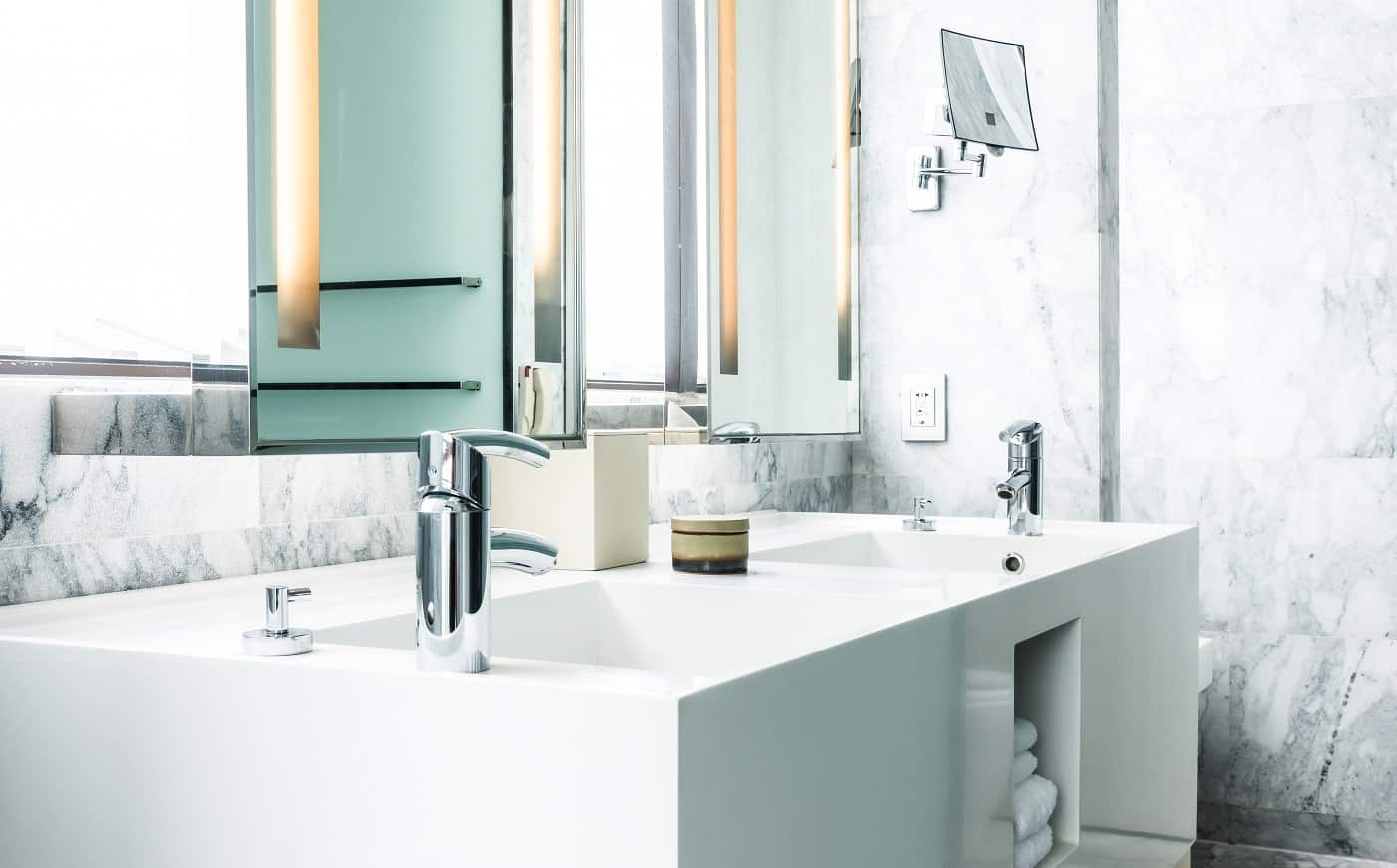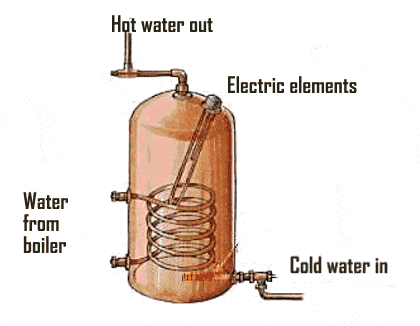Having access to clean, hot water is considered a luxury and convenience. There are several options to explore before deciding on the best water heater.
Most homeowners consider access to hot water an essential service. However, unforeseen circumstances can lead to issues with your hot water system. Having to wait for hot water for taking a shower or cooking can be annoying and a major inconvenience.
Are you looking for the best ways to have access to instant hot water? Well, you have come to the right place. We will tell you the best and easiest ways you can have access to instant hot water. Furthermore, we will also talk about the costs of installing an electric water heater system.
So without further delay, let’s get straight to the deets!
How To Get Instant Hot Water

Why Does Hot Water Take So Long To Reach The Faucet?
Let us begin the guide by addressing a common issue faced by a majority of homeowners with hot water systems. You may have experienced the annoying but all-too-common situation of heated water taking a long time to reach the faucet.
Although a faucet generally might receive plenty of hot water, ever so often, you find yourself greeted with chilled water first before heated water begins to pour out slowly.
So why does this happen? For starters, the cold water sitting in the pipes needs an outlet before the heated water can reach the faucet. Once the water is heated from the primary source, which is the water heater system, it typically travels through a series of pipes to reach the faucet.
This process can take some time, during which you are generally tolerating the cold water. Eventually, once all the cold water has been flushed out, you can access the much-awaited hot water.
That being said, keep in mind that several other factors might contribute to delayed hot water. Some of the most common ones are –
- The efficiency of your hot water system
- How old the hot water system is
- When it was last repaired or maintained
- Inadequate hot water in the system
- Internal issues with the heater
- Insulation of the pipes
- The distance from the primary source to the faucet
How To Get Instant Hot Water
Although the explanations above are reasonable, having to sit around and wait for hot water to reach you is not. Thankfully, there are several ways in which you can enjoy instant hot water in your home.
-
Demand Hot Water System
A demand hot water system, as the name suggests, enables you to have access to hot water on demand. The best part about these systems is how convenient it is to retrofit them into your home. Furthermore, if you are building a home and are wondering what kind of hot water system to install, a demand hot water system is a suitable option.
These hot water systems eliminate the need to wait for the heated water to reach a faucet. As you may have guessed, you can enjoy hot water “on-demand,” thanks to the efficient planning and design of the system.
So, how does this hot water system work? The farthest fixtures from the primary source (hot water system) have pumps installed under them. When you require hot water, all you need to do is turn on the hot water faucet to have instant access to it without waiting.
This is because the heated water is directly brought to the faucet with the help of a dedicated hot water line. The water contained in the cold water line is sent back to the water heater system to be heated. Once this water is hot, it is sent back to the faucet according to your requirements.
When the water at the farthest line is heated up to your desired temperature, the pump automatically stops. This gives you instant and continual access to heated water without having to wait for the cold water to be flushed out first.

-
Recirculating Hot Water Systems
As we explained earlier, the reason heated water takes time to reach the faucet is because of the long trip it makes from the water heater system. However, if there was a dedicated water line that provided hot water as and when required, the need for this trip would be eliminated.
A recirculating hot water system consists of a dedicated water line that connects the farthest point of your home plumbing system to the water heater. Essentially, this gives you instant access to hot water at any faucet of your home, thanks to the dedicated hot water loop.
A significant benefit of this system is that it prevents the unnecessary wastage of cold water that most homeowners have to tolerate before getting to the heated water.
Furthermore, you can attach a thermostat or a timer to this system. By doing so, the water is automatically heated (or the system is turned off) as and when you require it. This helps save utility bills and prevents wastage of water.
-
Point-Of-Use Tank Water Heaters
A point-of-use tank water heater is a convenient system for those looking for an instant hot water source. As the name suggests, these systems provide a water heating source close to an outlet (bathtub, sink, shower, etc.).
If you have a water heater system that is installed very far from specific fixtures, the addition of a point-of-use tank water heater can ease your worries. These systems immediately and rapidly heat water at the source where you require it. Moreover, the best part about these systems is that they can be integrated into your existing plumbing system very easily.
These tank water heater systems are similar to old-school water heaters, where a massive amount of hot water is stored for the home. However, these tanks are significantly smaller than the traditional ones.
Buyers can opt for several sizes according to the needs of their household. As such, you can purchase tank sizes ranging from 2.5-20 gallons. These systems are excellent for preventing the wastage of (cold) water and helping you save water and utility bills.
-
Point-of-Use Tankless Water Heaters
This water heater system is similar to the previous one. However, unlike point-of-use tank water heaters, these systems do not store hot water in a tank. As the name suggests, this water heater provides hot water instantly, and eliminates the need for a tank.
So how do these water heater systems work? We’re glad you asked.
Point-of-use tankless water heater systems work similarly to most traditional hot water systems work. Once you turn the hot water faucet on, cold or room temperature water travels through the water lines to reach the tankless water heater system. Here, the cold water is heated with the help of an electrical aid or a gas burner.
A significant distinction between the tank and tankless water heater system is that the former is measured by their storage capacity. The latter, however, is measured by how many gallons of water it can heat per minute.
As you may have figured out, tankless water heater systems may take a little longer to provide hot water compared to tank water heaters. That said, the delay is not significant and is only a matter of seconds.
Another vital distinction between them is that a tankless water heater generally uses an electrical system to heat water. This can take slightly more time as opposed to using a gas flame for the same.

How Much Does An Electric Water Heater System Cost?
Hot water is an essential aspect of most households and businesses. However, there are several hot water systems to choose from, which can make it slightly confusing for individuals.
There are multiple factors to consider when opting for the right hot water system for your home. The size and type of unit you opt for will dictate its price. Here is all you need to know about it.
Electrical Hot Water Systems
Typically, an electric hot water system comes in two types – instant and storage.
Instant hot water systems do not have a tank—these work by heating water on-demand and providing it to you as per your requirements. Depending on the brand you choose, an instant electric hot water system can cost anywhere between $680 and $1600.
Of course, the smaller the system, the lesser it will cost. That said, smaller systems may sometimes cost more depending on the technology used and how much hot water you require.
Electric Storage Hot Water System Price
The electric hot water storage system consists of a tank of varying sizes that stores hot water for later use. Depending on the requirements of your household, you may opt for a 25 L system or a massive 400 L system.
The smallest units may cost around $450, depending on the brand. The larger units, on the other hand, can cost up to $1900. These units often use two types of heating elements which can contribute to their high costs.
Other Factors That Contribute To The Price Of A Hot Water System
Are you considering installing a hot water system in your home and are wondering how much it will cost? The cost of the unit is not the only aspect to consider. In fact, several other essential factors can determine the final cost of installing a hot water system for instant hot water.
Here are some of the factors to consider when calculating the price –
-
Household Requirements
As you may have guessed, individual households have different hot water requirements. A family of 5 may require more hot water on a regular basis than a smaller family of 2. However, this is not always the case.
The type of activities in a household (or a business) can also determine how much hot water is required. The lifestyle and schedules of individual members should be considered when calculating the size and type of unit you wish to purchase.
-
Installation Costs
We recommend calling a professional plumber for the installation of your hot water system at home. Fortunately, several companies provide a technician to help you with the same. That being said, here you have to pay for the installation.
Depending on the size, type of unit, and the complexity of installation, the costs may vary significantly. For example, those looking to replace their current hot water systems may have to pay a lower cost. However, this depends on the type of unit you purchase and where you are installing it.
Those looking to reposition their hot water systems or replace them with a different type of unit may have to pay higher costs.
The time taken for the installation may also dictate the installation cost. If the installation process is relatively straightforward, it is bound to cost less than if the technician has to invest days to complete the installation.
-
Delivery Cost
Another factor to consider when calculating the price is the delivery cost. If you are lucky, the company will provide free delivery to your location. However, if the unit is large and heavy, or the distance is significant, you might have to pay separately for the delivery.
More Tips To Get Instant Hot Water
Now that you know about the most common types of electric hot water systems, let us talk about a few other ways to enjoy instant hot water.
-
Hot Water Cylinder

If you require large quantities of stored hot water at home, consider a hot water cylinder. As the name tells you, a hot water cylinder is a large cylinder or tank that can store hot water till you need to use it. The cylinder typically consists of heat exchangers and electrical heating elements. These work in unison to heat water as per the requirements of a household.
That said, hot water cylinders can be cumbersome and expensive. Moreover, they require frequent refilling. There are a number of ways by which water is heated in these cylinders, such as –
- Using natural, sustainable sources of energy such as solar energy
- Using electricity
- Connecting it to a boiler
- Gas
-
Insulation Of Water Pipes

Those looking to save costs and manage hot water more efficiently can consider insulating their current water lines. This effectively reduces the amount of heat loss that naturally occurs when heated water travels through the water pipes.
Furthermore, the insulation ensures that water remains heated for a more extended period when it is stored in the pipes (for specific hot water systems).
That said, please note that insulating your water pipes will not help you get instant hot water. Instead, it works to keep the heated water from dissipating its heat for longer. But it can help reduce your utility and energy costs.
-
Annual Repair, Servicing, And Maintenance Of Hot Water Systems
No matter what type of hot water system you install, regular maintenance and servicing are vital. This not only helps diagnose any issues early on, thus saving you from expensive repairs, but also increases the unit’s lifespan.
Moreover, it is imperative to have an expert check the hot water system in your home regularly to clean it. Without proper flushing of the tank, the hot water system may not operate as efficiently as when you first installed it.
-
Installing The Right Hot Water System For Your Home
As essential as it is to regularly clean and maintain a hot water system, you also need to consider the right one for your home. Every home has different hot water requirements, and finding the right system depends on various factors.
We recommend getting professional help from the best plumbers in your area when getting hot water for your home.
Homeowners often attempt to install a new system or integrate new technology with their current systems. However, doing this without professional help can be dangerous. As such, it is best to call for a professional who is qualified and trained to handle such tasks. Improper installation can lead to several issues in the future.
Final Words
Whether you require hot water for cleaning, cooking, or bathing, having access to instant hot water is a boon.
That said, it is vital to pick the right hot water system for any household. Unless you’re selecting the right unit, you might have to get the entire system replaced in the future.
And if you’re worried about costs, then don’t be. There are hot water systems for all budgets. Also, the government often provides rebates for specific types of units, so that is something to consider if you want to save costs.
So, which hot water system is the right one for your home? Let us know in the comments below, and stay tuned for more such guides.
Until next time, stay safe!
Related Articles
11 Best Thermal Leak Detection Kits



